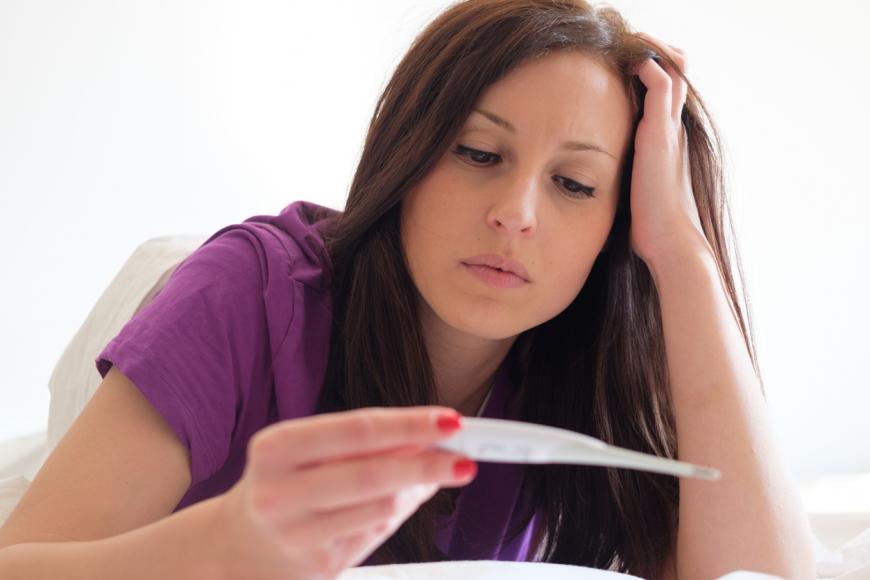How to Get Pregnant With Irregular Periods
Are you planning a family but struggle with irregular periods on a monthly basis? Here’s some advice to help…
2 July 2017
Editor

Women with regular periods can have between 11 and 13 menstrual periods in one year, which means they have up to 13 chances of conceiving each year.
On the other hand, however, women with irregular periods may have far fewer chances of achieving conception every year, which can potentially make the path to parenthood for them a much longer, more tiresome journey.
If you fall into the latter category – don’t panic. It is certainly possible for you to become pregnant. Understanding the causes of your irregular menstruation cycles and learning how you can restore a regular cycle can help you as you embark on your conception journey.
Here are a few questions and answers we’re sure you’ll find helpful…
How do I know if my periods are irregular?
A regular menstrual cycle typically has a period of every 23 to 35 days, which are predictable in nature. Whereas an irregular period is defined as a menstrual cycle that is consistently shorter than 21 days, or longer than 26 days.
Why does having an irregular period affect my chance of conceiving?
Having irregular periods can indicate that you are ovulating inconsistently or for some women, not at all. Therefore, the less you ovulate, the lesser opportunities there are to conceive per year.
What could be causing your irregular cycle?
It is perfectly normal for any woman to experience irregularity in their menstrual cycle now and again, especially during stressful times or due to illness. But for women who experience chronic irregularity, it is likely that there is an underlying hormonal imbalance that impacts the frequency of ovulation and/or menstruation.
The most common known causes of hormonal imbalance are the medical condition known as Polycystic Ovarian Syndrome (PCOS), plus eating disorders.
PCOS is the stimulation of multiple follicles that generate high levels of estrogen, without the successful release of an egg. The excessive estrogen stimulates the uterine lining to thicken to a point where it must slough off, which results in menstrual bleeding even if no ovulation has ever occurred.
Additionally, eating disorders often affect hormonal imbalances, which result in irregular or completely absent menstrual periods – this is called amenorrhea.
Other lifestyle habits can also make cycles irregular, including 3 hours or more of strenuous exercise per day, lack of adequate nutrition resulting from anorexia and/or physical stress caused by excessive exercise.
Can irregular periods be a sign of infertility?
Sadly, yes… But the margins are low. Irregular or abnormal ovulation accounts for only 30% to 40% of all cases of infertility.
After all, irregular or absent periods indicate that you aren’t ovulating correctly, and you need an egg to conceive. Don’t panic though, as there are means to regulate your periods to help get you started.
How can I improve my chances of getting pregnant?
It’s important to first restore some regularity to your cycle, and increase the frequency of ovulation. By making a few simple lifestyle changes, it is possible to improve the balance of your hormones and help make your periods more regular.
1. Eat a healthy, well-balanced diet
Try to incorporate whole grains, fruits and vegetables, and avoid foods that are high in refined carbohydrates and fat.
2. Attain a healthy weight
If you’re overweight, losing a few pounds through moderate calorie restrictions and exercise can be very beneficial, especially if you’ve been diagnosed with PCOS. Likewise, if you’re underweight, try adding on a few pounds.
3. Take a fertility-enhancing supplement
Every woman TTC should take a prenatal vitamin, which is a way to ensure their body is getting all of the nutrients it needs to sustain a healthy pregnancy and support a growing fetus.
4. Exercise regularly and moderately
Getting regular exercise is key to fertility, but be careful – too much exercise that is strenuous can have detrimental effects to your fertility.












































